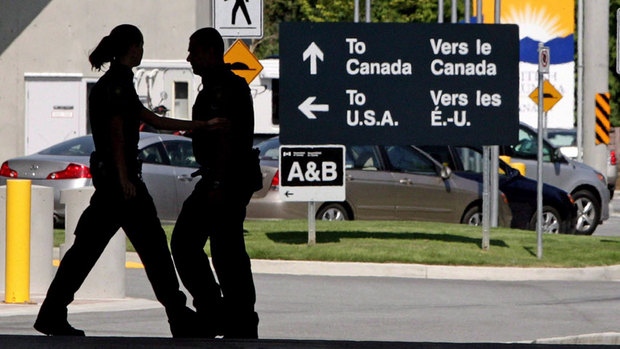The Canada Border Services Agency (CBSA) has said that it will continue to require its border services officers (BSOs) to wear name tags after a July 3 decision by the Occupational Health and Safety Tribunal Canada. The tribunal’s ruling found that the name tags are a hazard to BSOs, obliging the CBSA under the Labour Code and Occupational Health and Safety Regulations to take preventive measures to protect its agents. It stated that the CBSA must implement measures to eliminate or reduce the hazard, but left it to the agency to work out what those measures might be.
The CBSA now plans to conduct a risk assessment, during which BSOs will still have to wear their name tags. Agency spokeswoman Esme Bailey pointed out that that the tribunal had not prohibited the name tags, only directed additional preventative measures to reduce the risk they pose. She said that the CBSA will consult with the Customs and Immigration Union representing BSOs to develop the new measures and get them in place quickly, and assured CBSA employees that the agency prioritizes their health and safety.

The union, in the person of Jason McMichael, its first vice president, said it would cooperate in the risk assessment to ensure that it places proper emphasis on BSO safety. It will also direct its members to continue wearing their name tags during the process, although McMichael does not believe that is legally required following the tribunal’s ruling. He said he asked upper-level CBSA management for permission to take them off, which was denied. McMichael did not rule out a decision to disobey the name tag mandate in the future, but indicated that the union would wait until it had a stronger legal standing in order to avoid getting its members in trouble.
The CBSA’s name tag policy has been in place since the end of 2012; it requires that on-duty BSOs wear a tag showing their family name. The name tags replace the badge numbers previously displayed on BSO uniforms. They were initially supposed to include the first initial as well as the family name, but that requirement was dropped as a result of union opposition.
The CBSA did not evaluate the potential hazards of name tags before implementing the policy, but did so the next month after several health and safety officers objected. Its subsequent report characterized the hazard as a “relatively low level” one that “should never be ignored but [is] not a priority” and decided that it did “not require an action plan”. However, the Occupational Health and Safety Tribunal ruling says that was not the agency’s decision to make: when a hazard is identified, the Occupational Health and Safety Regulations require that something be done about it, even if the employer considers it to be a minor one.
The Customs and Immigration Union “vehemently” opposes name tags, McMichael said, because of the potential for revenge attacks from members of the public who feel they have been mistreated by BSOs. Officers are concerned that displaying their names will make it easier for angry travelers to find them anonymously through telephone listings, the Internet, and social media, and some have taken to using aliases online. McMichael argued that anyone who had a legitimate complaint about a BSO would be able to pursue it through official channels even if the officer was not wearing a name tag.
However, most other law enforcement officers, including the Mounties, do wear name tags, and rulings on whether this endangers them to any degree have been mixed. For example, in 2011 the Ontario Labour Relations Board found no “increased risk of harm” to Toronto police officers, ending five years of opposition to name tags from the Toronto Police Association. That decision followed the 2010 G-20 Toronto summit protests during which many Toronto police removed their name tags, making it more difficult to identify them during later investigations of police brutality.
The Canadian Civil Liberties Association, which advocates name tags for all law enforcement officers, says they promote accountability and build public confidence. The CBSA has also mentioned accountability among its reasons for adopting the policy, and says name tags also demonstrate a commitment to professionalism and public service.

 Payment
Payment  My Account
My Account